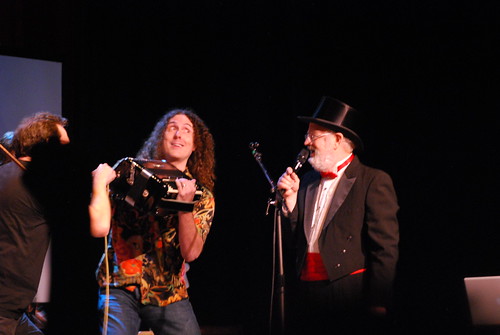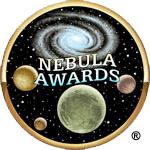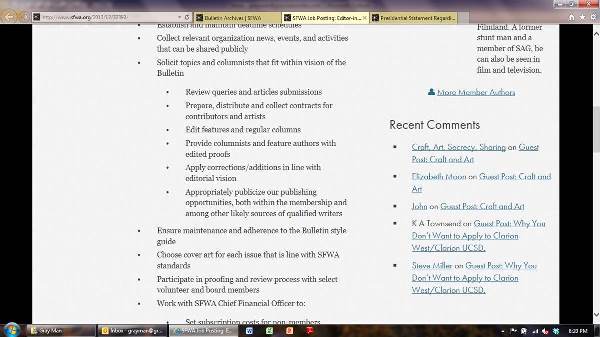Now THERE’S a headline I never thought I’d write, and I get to do it courtesy of Dr. Demento!

(“Weird Al” Yankovich and Dr. Demento. Photo by Genevieve, from Flickr under Creative Commons.)
I felt as if I was levitating when I learned that two — not one, but TWO — of my songs had been played on The Dr. Demento Show since the beginning of the year. (Sure, since then other things have brought me down, but when I think about this it still puts a smile on my face.)
“Another Romulan Ale” seems like an appropriate song for New Year’s, and Dr. Demento played it on his first show of 2014. And, sure enough, Frank Zappa and “Weird Al” Yankovich were on the playlist — along with Cheech & Chong and Bob Dylan. Quite a group!
Then on the 1st of March the Dr. did a show focusing on music related to science fiction:
This week Dr Demento presents The History of Science Fiction in Song…from “Stardrek” and “Banned from Argo” to “Tauntauns to Glory” in 80 minutes…plus “We Won’t Give ‘Em Sex,” “Winestoned Plowboy,” “There’s a Baby On the Plane”, more.
Folks familiar with science fiction and fantasy music (a.k.a. “filk”) know that “Banned from Argo” is arguably the most famous filk song of all time. So it’s one thing for Dr. Demento to decide to play “Tauntauns to Glory,” but for him to list it in the show description in the same breath as “Banned from Argo” … that took this whole experience over the line into surrealism, even before I realized I was on the playlist again with “Weird Al,” this time plus Devo, Nat “King” Cole, Frank Hayes, and Leslie Fish.
So, yeah, good times!
If you like “Romulan Ale” or “Tauntauns” or some of the other songs from Truths and Lies and Make-Believe, and think Dr. Demento should play more of them, he has a song request form you can fill out. That would be cool, or I’d be much obliged if you would post a review on Amazon or iTunes or CD Baby or elsewhere. That would be awesome!
Meanwhile, as the Dr. would say, stay “deeeee-mented”!














